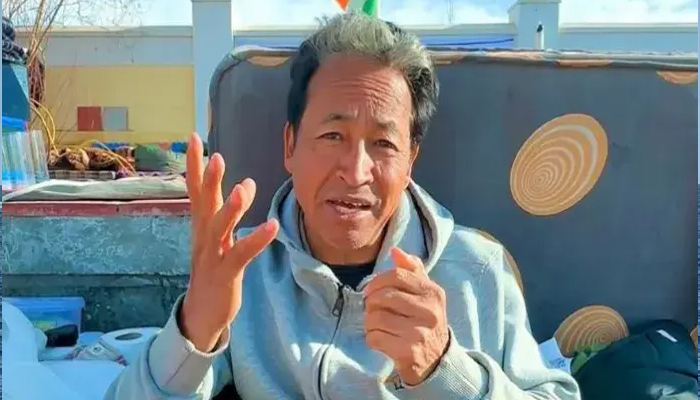
The Kargil Democratic Alliance (KDA) and the Apex Body of Leh have called for a bandh across Ladakh after detention of climate activist Sonam Wangchuk on Monday night. Many shops throughout the region remained closed as locals protested for Wangchuk’s release and advocated for the implementation of the Sixth Schedule to protect the rights of the Ladakhi people.
Hajan Fathima Bano, an 87-year-old activist from the Apex Body, expressed her distress over Wangchuk’s detention and the broader fight for Ladakhi rights. She added, “We’ve been informed that they have been detained. They didn’t go to incite violence; they were advocating for the Sixth Schedule on behalf of the people of Ladakh. We are prepared to sacrifice everything to support them. They must not be imprisoned.”
The bandh aims to bring attention to the ongoing struggle for greater autonomy for Ladakh and the preservation of its distinct cultural identity. Activists are urging the government to take their demands seriously and prioritize the needs of the Ladakhi community.
Sonam Wangchuk and his supporters were apprehended by Delhi Police at the Singhu border on Monday night. Police have enforced Section 163 of the BNS at the borders of Delhi. Wangchuk shared news of his detention on social media, stating, “I AM BEING DETAINED… along with 150 padyatris at Delhi Border, surrounded by a massive police presence, reportedly around 1,000 officers. There are many elderly individuals in their 80s and several Army veterans among us… Our future is uncertain. We were peacefully marching to Bapu’s Samadhi… in the largest democracy in the world.”

Wangchuk and other volunteers were on a foot march from Leh to New Delhi, calling on the central government to restart discussions with Ladakh’s leadership about their demands, with a significant focus on incorporating Ladakh into the Sixth Schedule of the Constitution. This provision currently governs tribal areas in Assam, Meghalaya, Tripura, and Mizoram, allowing for the creation of autonomous councils with legislative, judicial, executive, and financial authority, thus enabling these regions to self-govern.
